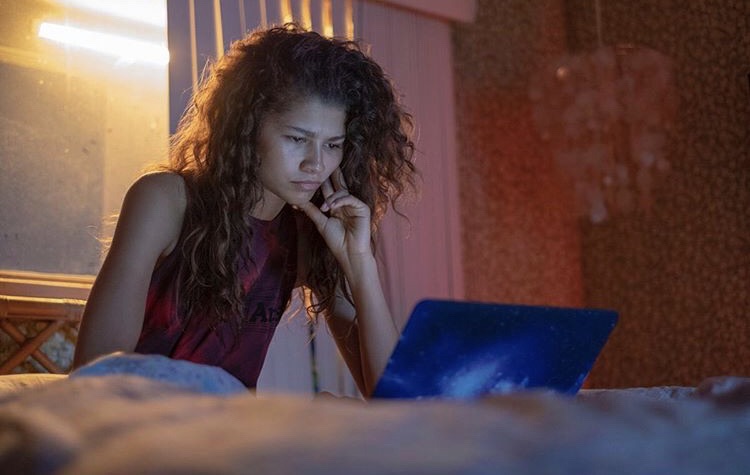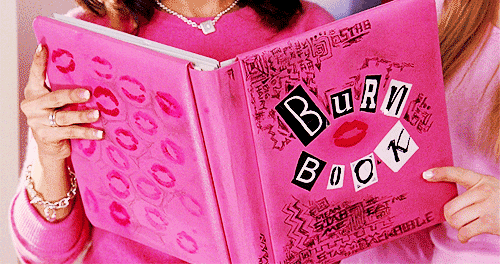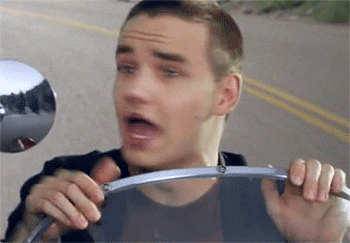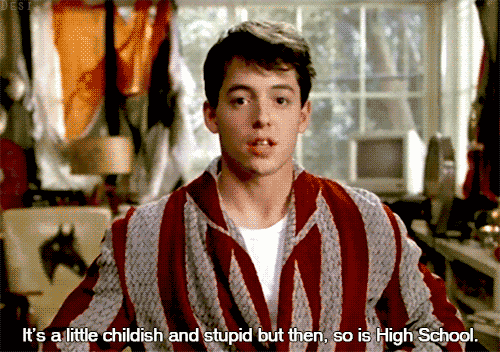
Social media has been one of the most integral parts of the high school experience since the dawn of MySpace Top 8 friends lists.
While it can be a whole lot of fun, when misused, it pretty much has the potential to become one giant, virtual Burn Book.

Seriously, high school is already hard enough. Still, with the additional stress of snarky comments, group chats and the pressure to post Kylie Jenner-level selfies, it can make things even more difficult.
I was in high school during the absolute peak of stan Twitter, Tumblr and the Instagram toaster filter craze. Like most teens, my experience on social media wasn’t perfect – I definitely found myself in situations that I wish I had handled better and honestly regret a few of them.
Posts and jokes online that start as something lighthearted can turn into something sinister and seriously impact your (or others’) mental health and wellbeing, so it’s important to remember you’re not alone and know who to talk to – here’s what you can do to avoid situations like mine.
Private Accounts Are Never Actually Private
There’s something both sneaky and alluring about starting a private account or group chat. It gives you a false facade of anonymity, yet you’re still projecting all your thoughts and feelings to an audience who you’ve chosen to be “in” on the secret.
One of the most salient memories I have from high school was an incident that involved a seemingly private Twitter that only my friends and I knew about, a One Direction meet and greet competition and an in-school suspension.

Basically, a girl my pals and I weren’t particularly ~friends with~ won a comp to meet the Almighty 5 and my friends, and I did not. A few “private”, very mean spirited subtweets about her later, and, all of a sudden, my name was being called over the school’s PA to report to the office immediately. Someone had sent her the tweets, to which her parents had seen and had rung the school in a flurry of anger.
To this day, I’ve never felt more horrible in my life. Having to apologise to her and her parents, and watching the sheer disgust in my year coordinator’s eyes as I fessed up frankly sucked.
A few moments of internet banter had turned into something that made so many people feel terrible – which is a stark reminder to always think about how your actions can impact other people, even when they seem harmless (or secret) at that moment. If you’re ever stuck for what to do in situations like this, Kids Helpline have a few questions to ask yourself before posting – because remember, everything you write online creates a trail.
Meme Pages About Your School Will Probably End Up Being Toxic
This one may not come as a shock to you but schools usually don’t see the ‘funny’ side to what you categorise as ‘have a bit of fun’. They’re not very happy when straight-up offensive memes about teachers and students are made and put on the internet.
In Year 9, a student made a meme page about my school, and it blew up. It was the first time I ever remember the entire student body unified over one particular interest, and it was just so entertaining. But, because teenagers can be so dang nasty, a lot of the content was in pretty poor taste and wasn’t a great look for the school.

I wanted to fit in and score clout amongst the crowd, so I made a meme about a particular teacher, Krispy Kreme doughnuts and the Biggest Loser. You can gather in your mind what that may have looked like.
The school caught a whiff of what had been going on with the page, and identified everyone who had contributed. I felt so ashamed of myself for being part of it – unfortunately, it took a situation like this for me to realise that making fun of others to fit in is never worth it. Luckily, these days there’s a tonne of accessible info online that’ll give you guidance and wisdom to understand the consequences of actions like this before you make the mistake.
Tell People When Jokes Aren’t Funny Anymore
Maybe I should’ve just never have been on Twitter. Anyway.
When I was 13, I had a Joe Jonas stan Twitter account, and over the years, I kind of forgot it existed. However, it’s so easy to find out anything about anyone on the internet, in Year 11, my friends discovered the horrendously cringe-drenched account.
The lampooning I got didn’t stop for yonks, and it is still mentioned and referenced to this day.
I felt particularly crappy about it at the time because I’d just made the transition from teeny-bopper stan freak to full-blown Pierce The Veil-scene chick and I just felt like I was never going to be truly alt. While I did laugh at the jokes and copped it on the chin, feeling the blood rush to my cheeks in a state of paralysing embarrassment when someone would bring it up never felt great.
I should’ve had the courage to simply remind everyone to cut it out when I started to feel bad, but the jokes persisted. I know they never intended to hurt my feelings, but in hindsight, I now know there’s definitely a line that gets crossed when banter becomes bullying.
And yep, my friends made my 17th birthday card entirely out of tweets from the account and got everyone from our grade to sign it.

If Content Makes You (Or Others) Feel Uncomfortable, Tell Someone
Before there was alt-TikTok and E-Girls, Tumblr was the OG destination for getting your daily dose of soaking up rebellious content. While Tumblr did have its perks, there was a lot of problematic content on the platform.
It wasn’t uncommon to see multiple posts a day framing eating disorders, self-harm and different forms of abuse in a positive light. I, as well as so many of my friends engaged with this sort of stuff – however, I always had an inkling something was a little off. I knew it was really bad when I started to see my friends adopt these behaviours.
As a teen, I wasn’t equipped to deal with this information, or even know who to talk to – I knew for sure that I didn’t want to be a snitch and ‘tell on’ my friends for this stuff, but my gut instinct always set off red flags.
I wish I had the strength back then to bring it up or ask someone older and wiser about what I was engaging with. Even though Tumblr isn’t really a thing anymore, there’s still a lot of potentially harmful stuff that can happen on social media.
I’m not saying you need to be afraid, become a complete hermit and throw your phone off a bridge, but, it’s in your best interest to know who your support network is and arm yourself with the info you feel like you need to cope.







